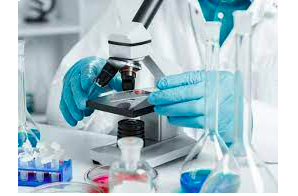- It covers activities including the handling of pandemics, biotech research, human genetic materials and the management of labs
- Industries affected range from health care to food and agriculture, and those in breach could be jailed or face financial penalties
seriously after it took effect on Thursday, with certain activities now deemed criminal acts.
The law applies to a long list of activities, including the handling of pandemics, biotechnology research and human genetic materials, and the management of laboratories. Those who break the law could be jailed and face 10 million yuan (US$1.53 million) in penalties.
.
Ethical dilemmas over genetic engineering also likely prompted the drafting of the law.
In 2018,
She said it was designed with security in mind and aimed to promote the development of biology technology in a safe way and to protect people’s well-being and the ecology. People who could be affected should be proactive to ensure they complied, she added.
“We believe that the life sciences companies should take the law a lot more seriously, as some violations have already been coded into the criminal law,” Xiao said.
“The industry is aware but I think we need to do more than just being aware of this. For example … they could conduct an audit and establish an internal compliance system.”
Xiao said more details were expected on how the law would be implemented in certain areas.
Foreign entities are banned from collecting human genetic resources in China without approval, and those in China who illegally transport resources overseas could be fined or jailed for between three and seven years. Illegal human genetic engineering attracts the same punishment, according to China’s criminal law.
There are some exceptions, such as clinical trials for drugs entering the Chinese market, but prior registration is required, the biosecurity law says.
Read full article at https://www.scmp.com/news/china/science/article/3129740/legal-experts-urge-people-take-new-chinese-biosecurity-law




